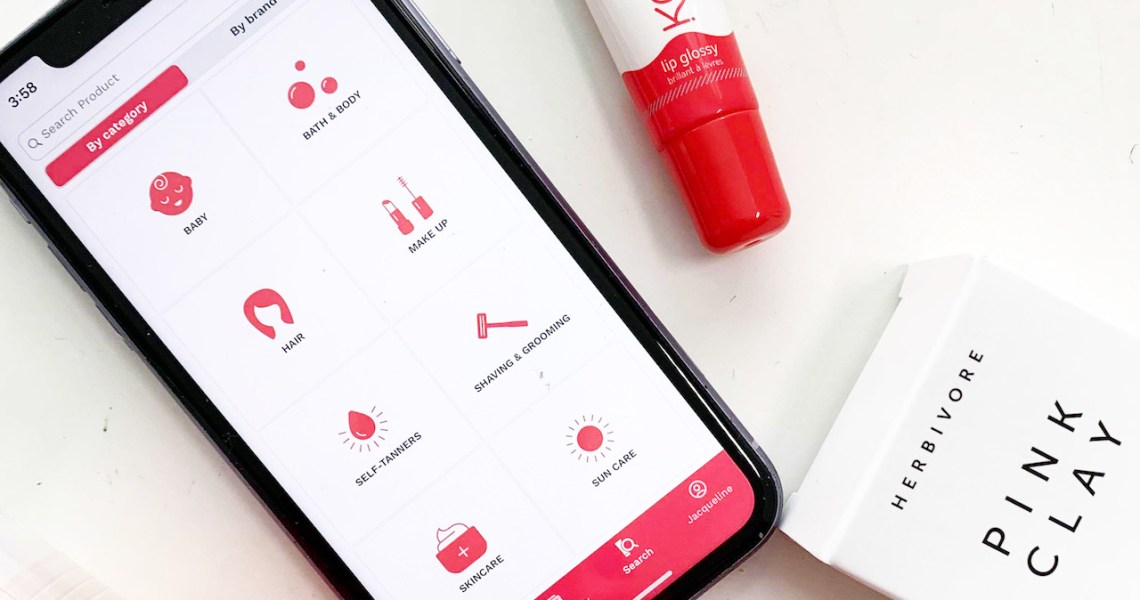Finding products like aluminum-free deodorant and fragrance-free skin care is getting easier every year, as startups multiply in the clean beauty world. Like ingredient research platforms such as mobile app Think Dirty and the Environmental Working Group’s Skin Deep app, The Good Face Project launched its app for iOS today to help clean beauty consumers do ingredient research.
Like Think Dirty, all ingredients are listed with links to the latest research reports on each one, which are updated frequently based on AI-led searches though scientific journals. Products are given a plus or minus safety grade, followed by the number of ingredients in four main categories: allergens, irritants, hormone disruptors and carcinogens.
Iva Teixeira, the co-founder and CEO of the company, said the inspiration for the app came about in 2017 when she was conducting consumer surveys on a consulting project for a major beauty conglomerate.
“I was interviewing women in their 30s and 40s, who had higher earning power and were kind of actually moving away from that brand portfolio,” she said, declining to name the company. The main thing respondents said was, “First and foremost, ‘I want my product to be clean.’” According to Teixeira, “I had no idea clean beauty was a thing at that point in time.”
After being developed for two years, the company received angel funding this year as clean beauty has become more mainstream in the U.S. According to NPD Group, clean beauty brands saw 39% year-over-year sales growth in 2019, while those categorized as “natural” had 14% growth.
The app’s business model is to serve as a combined source of shopping and ingredient research, with links to purchase products on affiliate partners including retailers Amazon, Ulta, Sephora, Credo Beauty, Follain and Detox Market. Its other selling point is an AI-driven product recommendation tool based on an individual user’s preferences, including age, skin type and skin concerns. The app recommends products to consumers with a percentage match for their profile.

Ad position: web_incontent_pos1
The app also features a more in-depth index that brands can join if they are willing to share certain information with the platform. “We review their formula and ask them what percentage concentrations of any ingredients might be egregious,” said Teixeira. “They have to show us where the ingredients came from.” Brands with products receiving the app’s “Good Face Approved” label include Suntegrity, OY-L, Odele and 100% Pure.
Think Dirty, meanwhile, also has affiliate shopping links with retailers like Sephora and Amazon, as well as DTC links to brands like Biossance, Blunt Skincare and Basd. It features brand and retailer promotions on its homepage, and displays a disclosure on product listings stating that it sometimes receives compensation from rated products.
Some clean beauty advocates worry about the mix of information and commerce on these types of apps. According to app founders, their standards motivate brands to reformulate in order to be worthy of the clean label.
“We don’t grade brands as safe or unsafe,” said Teixeira. “We grade products as safe or unsafe. Brands, most of the time, have a mix of products. Even legacy brands that are struggling to make the shift to clean actually have some clean products.”
According to Teixeira, the company said it is willing to help brands reformulate products if they have concerns over a poor rating. In addition to the consumer-facing app, the company is also working with two cosmetics manufacturing companies to develop clean formulations. “It’s a very collaborative and very productive conversation, but of course, it can start out being kind of an unhappy one.”




